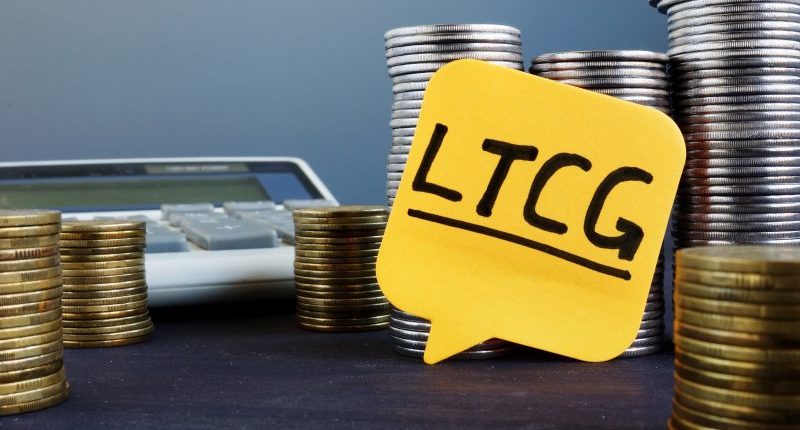The Union Budget 2020-21 has gained immense significance as it has come at a time of the economic slowdown. The gross domestic product (GDP) is at a six-year low. The consumption has plummeted to record levels, causing businesses to rethink their strategies. This Budget, investors have plenty of expectations from the government.
In spite of adverse economic developments, the markets have peaked to record levels over the last two quarters. This has got to do with the government announcing economic and growth boosters in two rounds, which included a slash in the corporate tax rate. Also, an alternative investment fund was set up for the realty sector.
The Union Budget 2020-21 will be presented by Nirmala Sitharaman, the Finance Minister of India, on 1 February 2020. Investors expect the Budget amendments to address short-term and long-term challenges. Also, they expect the government to roll out tax benefits.
The first and foremost expectation is the removal of the tax on long-term capital gains. The Union Budget 2018-19 brought back the LTCG tax on equity investments after 15 years. This meant that investors redeeming their equity investments after one year should pay the LTCG tax at the rate of 10% if the gains exceed Rs 1 lakh a year, and there is no indexation benefit.
With respect to LTCG on listed equity, the LTCG tax of 10% should be withdrawn. Secondly, the LTCG holding period could increase to three years on par with gold, debt mutual funds, and so on. The LTCG on listed equities held for more than three years should be made exempt. The extension of the holding period and tax exemption would boost capital markets, especially long term and strategic investors. The government too would benefit from the increased capital market activity through the collection of STT on equity trades and STCG paid at 15% (plus cess) on all equity share sale within three years.
Also Read: Expectations from the Union Budget 2020 due on 1 February 2020
Apart from the LTCG tax, the investors are already paying securities transaction tax (STT). It was introduced in the Union Budget presented in the year 2004. The Union Budget 2018-19 did not abolish the STT while it added LTCG tax. This means that investors are taxed twice on the same gains. The current STT rates are given below:
| Taxable securities transaction | Rate of STT | Person responsible for paying STT | Value on which STT is required to be paid |
| Delivery based purchase of equity share | 0.1% | Purchaser | Price at which equity share is purchased* |
| Delivery based sale of an equity share | 0.1% | Seller | Price at which equity share is sold* |
| Delivery based sale of a unit of oriented mutual fund | 0.001% | Seller | Price at which unit is sold* |
| Sale of equity share or unit of equity-oriented mutual fund in a recognised stock exchange otherwise than by actual delivery or transfer and intraday traded shares | 0.025% | Seller | Price at which equity share or unit is sold* |
| Derivative – Sale of an option in securities | 0.017% | Seller | Option premium |
| Derivative – Sale of an option in securities where the option is exercised | 0.125% | Purchaser | The difference between settlement and strike prices |
| Derivative – Sale of futures in securities | 0.01% | Seller | Price at which such futures are traded |
| Sale of a unit of an equity-oriented fund to the Mutual Fund – Exchange-traded funds (ETFs) | 0.001% | Seller | Price at which unit is sold* |
| Sale of unlisted shares under an offer for sale to the public included in IPO and where such shares are subsequently listed in stock exchanges | 0.2% | Seller | Price at which such shares are sold* |
| PURCHASE OF UNITS OF EQUITY ORIENTED MUTUAL FUNDS | NIL | PURCHASER | NA |
Abolishing LTCG tax or amending the definition of the holding period for equity instruments in an investor-friendly manner will boost the market sentiment and attract more investors to invest in the equity segment. If the LTCG tax is not removed, then investors expect the government to increase the holding period to three years after which equity holdings are considered ‘long term’.
Apart from tax relief on LTCG, investors are also expecting the government to amend taxation norms for the dividends received from the domestic companies. When a domestic company decides to distribute profits in the form of dividends to its investors, it first pays dividends distribution tax (DDT) at an effective rate of 21.56%. The dividends of up to Rs 10 lakh a year are made tax-free in the hands of investors.
However, dividends are taxable at the rate of 10% in the hands of investors if they receive dividends over Rs 10 lakh a year. This is double taxation as their gains will already be taxed before they receive it from the companies. Abolishing dividends tax will attract more investors.
For any clarifications/feedback on the topic, please contact the writer at vineeth.nc@cleartax.in
Engineer by qualification, financial writer by choice. I am always open to learning new things.





